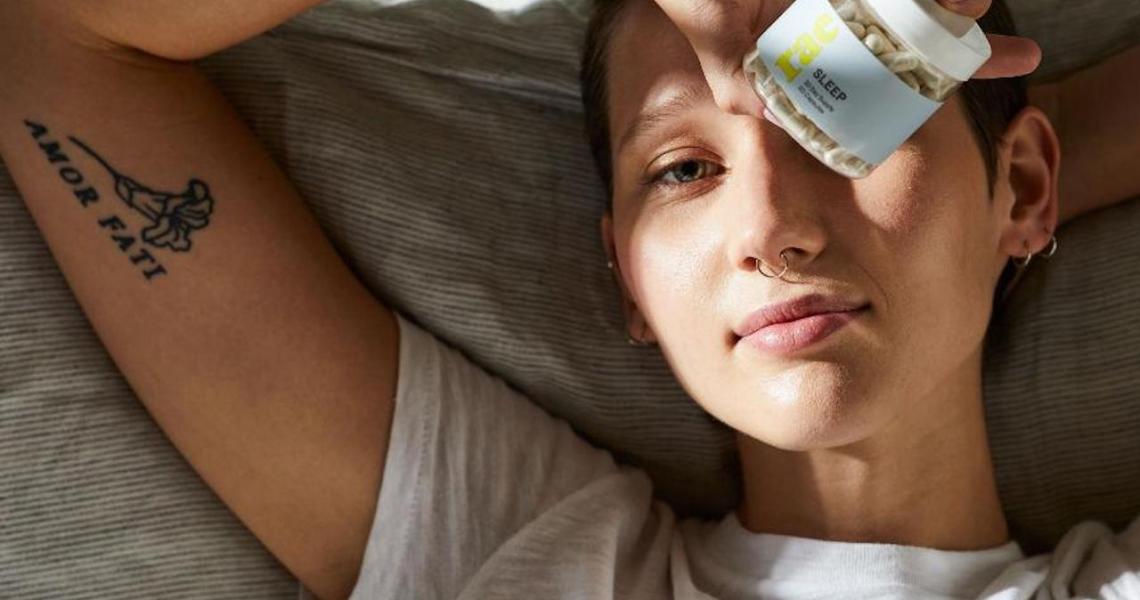Last week, teens on TikTok found a new product to obsess over: Metabolism Drops by supplement company Rae Wellness.
The drops, previously sold direct-to-consumer and in Target stores across the country, quickly became a phenomenon among younger women on the platform looking to lose weight. It helped that they were priced at just $14.99 a bottle. However, the products are designed for women 18 and older — not teens — with a recommended dose of one drop a day. Through videos posted on TikTok, it became clear to the brand that women younger than 18 were using the drops and more than the recommended dosage. After receiving criticism online, Rae Wellness and Target stopped selling the products, as well as metabolism capsules, last week.
Companies like Flat Tummy Tea and Sugar Bear Hair have come under fire for promoting weight loss culture and harmful ingredients, respectively. Rae Wellness further demonstrates the challenge wellness brands face in the era of social media, especially as TikTok catches on among young users. TikTok hit 1.5 billion downloads globally in 2019, and skews heavily towards Gen Z users.
“This felt like the Kim Kardashian detox tea craze, but it didn’t start with a kingpin like Kim Kardashian. That speaks to the nature of how TikTok works, and highlights the interesting, potentially dangerous aspect of it. TikTok is a huge economic opportunity for brands,” said Brian Freeman, CEO and founder of influencer marketplace Heartbeat.
Hashtags like #RaeWellness, #MetabolismDrops and #RaeWellnessMetabolismDrops took off on TikTok over the last two weeks. Videos tagged with #RaeWellness have over 134,000 views, and those with #Rae have over 11.4 million views (not all of these videos are specifically about the brand). Videos featuring the drops also include hashtags like #WeightLoss, #LoseWeightChallenge and #Diet, and the corresponding captions are often about summer bodies, losing weight and buying the product because they saw it on TikTok.
“When a wellness product goes viral, it makes it much more difficult to control,” said Allegra Salke-Hussey, associate account director at marketing firm RQ. “When a product is touting a very simple way to curb hunger at a very cost-efficient price, young women will flock. Going forward, brands will have to have a better understanding of what it means to go viral and the control they want over consumer habits,”
In the wake of this product going viral on TikTok, Target pulled the drops from its shelves last Sunday. A spokesperson for Target said, “At the request of Rae Wellness, Target issued a voluntary withdrawal of the Rae Wellness Metabolism Drops.”
Ad position: web_incontent_pos1
The spokesperson referred further questions to the brand. Rae Wellness directed Glossy to a statement issued on the company’s website.
In the statement, Rae Wellness said: “We became concerned when we started to notice a conversation emerge: teenage girls misusing the product alongside conversation about weight loss, at times using more than the recommended dose… While there is no risk in taking Metabolism Drops as directed, because of this misuse, we have decided to proactively pause the sale of our metabolism products, and worked quickly with Target to voluntarily withdraw the product in stores and online.”
Currently Rae Wellness is not active on TikTok, and while the company does work with influencers to market its supplements on other platforms like Instagram, it did not work with influencers to promote this specific product on TikTok. Even so, the viral nature of the TikTok platform inadvertently made the product take off, and among the wrong group of consumers.
“On TikTok, trends are quickly picked up and replicated over and over again. There’s a much faster snowball effect than what we see on other platforms, and teen girls will pick up on a trend if they think it will give them TikTok clout,” said Ruth Bernstein, CEO and co-founder of advertising agency Yard NYC.
The drop product is still listed on Rae Wellness’ website — along with the capsules — but neither can be purchased at this time. Rae Wellness’ site sells 18 other supplement products, as well. It’s unclear whether the product will be available again in the future, and what the repercussions will be for the young brand’s sales and retail partnerships moving forward. Rae Wellness launched in September 2019 and quickly went into Target stores in January. But Hers came under fire last year for advertising an “anxiety aid,” a beta-blocker called Propranolol, on social media without laying out side effects. The company quickly received backlash on social media for downplaying the severity of the medication and issued an apology as a result. Rae Wellness has yet to make a public apology on its channels.
Ad position: web_incontent_pos2
One of the questions moving forward is how the brand will monitor the sale of its Metabolism Drops to prevent teens from buying them, should they continue to be sold DTC or through Target at a later time. However, the responsibility wellness brands have to educate consumers about their products and, subsequently, start conversations about body image, health and well-being is certainly on the minds of onlookers.
“It’s one thing to want to go viral, and it’s another thing to have it happen and to have a negative effect. One thing that brands can do is be thoughtful about the influencers and networks they tap into, to make sure the age is appropriate and the way they message the product benefits won’t be manipulated,” said Bernstein.




